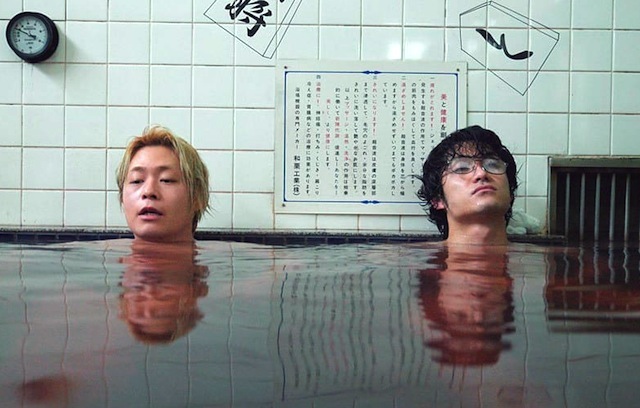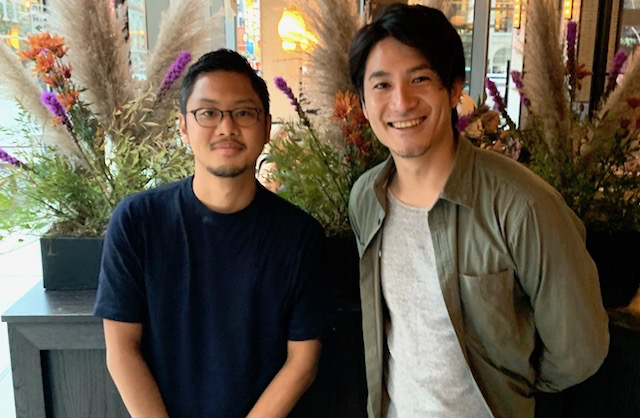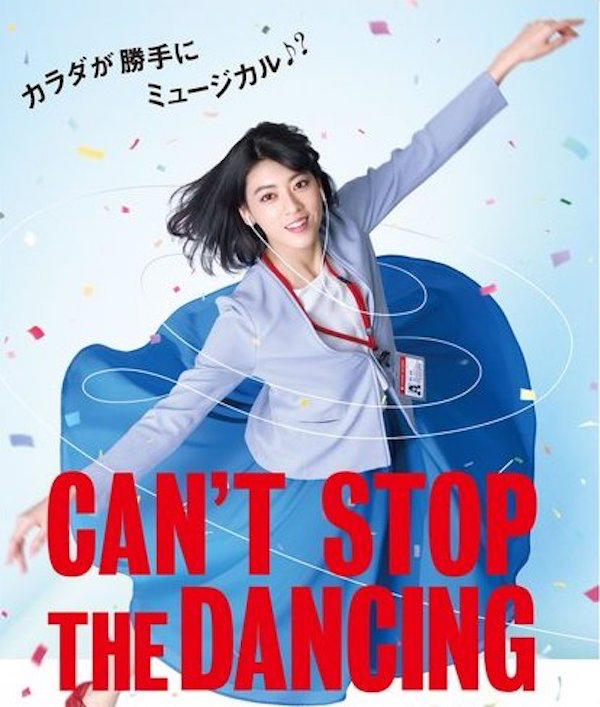CHICAGO– Season Nine of Chicago’s Asian Pop-Up Cinema (APUC) celebrates Japan this week, and brought in the writer/director Seiji Tanaka and lead actor Yoji Minagawa to represent their film “Melancholic.” This crime drama combines a man’s inability to enjoy life with hired assassins at a bathhouse.
Kazuhiko (Yoji Minagawa) is in a funk with his life, despite earning his degree from a top university. His melancholia prevents him from breaking out of his parent’s upper middle class existence and his ability to move his life forward. After a chance encounter with a high school friend during a visit to a bathhouse, he notices a employment opportunity and begins to work there. He eventually discovers that this bathhouse is being used for nefarious after-hours activities, which is bad enough, but then Kazuhiko finds that his co-worker is an assassin.

‘Melancholic,’ Directed by Seiji Tanaka and Featuring Yoji Minagawa (right)
Photo credit: AsianPopUpCinema.org
“Melancholic” is part of the program-packed Season Nine of APUC, as their new format (multiple films per week) highlights a different Asian country or theme every week. This week, Japan will be in the spotlight (see page two for the rest of the week’s programming). APUC is facilitated by founder and veteran film programmer Sophia Wong Bocchio, and Season Nine features films from South Korea, China, Japan, Thailand, the Phillippines, and Hong Kong, among others. The films mainly screen at Chicago’s AMC River East 21, with various other locations throughout the season (click link below at the end of the article for more details).
Patrick McDonald of HollywoodChicago.com talked to writer/director Seiji Tanaka and lead actor Yoji Minagawa (also a producer) through an interpreter right before his September 25th screening. “Melancholic” is Seiji Tanaka’s directorial debut.
HollywoodChicago.com: One of the more interesting elements in ‘Melancholic’ is the attitude towards killing in the film, and how the shock of it affects people differently, depending on their situation. What was your feeling about the act of killing after exploring it in this story?
Seiji Tanaka: Well, regarding killing people in the real world my attitude remains solidly against it. [laughs] But the nuance in the film is that the killing is treated as an occupation, like fashion is an occupation in ‘The Devil Wears Prada.’
HollywoodChicago.com: You had to create a different kind of character, one whose depression was his overriding emotion. At what point in the action of the film did you and Seiji decide to allow the character to begin the process of emotional healing?
Yoji Minagawa: Although the character is depressed, I felt it was more of a coming of age film. There is a point in the film, however, where my character goes on a job with an assassin, and experiences the shock of what happens, that changes his point of view about his own life and his family.
HollywoodChicago.com: Seiji, there is a feeling of Alfred Hitchcock in the film, in the themes of both murder and an ordinary person being involved in murder. How did you want to make your feeling of suspense unique to your style?
Tanaka: My two main influences for this film was the American TV show ‘Breaking Bad’ and the films of Woody Allen. My style of ‘suspense,’ as you put it, really rolled out as I was filming the story.
HollywoodChicago.com: Yogi, which relationships in your own life do you think was closest to your character Kazuhiko …and which scene in the screenplay was most intimate to your real self in that relationship?

Director Seiji Tanaka and Lead Actor Yoji Minagawa (right) of ‘Melancholic’ in Chicago
Photo credit: AsianPopUpCinema.org
Minagawa: There were many overlaps in my life and Kazuhiko’s life. For example, I related to the scene where a new co-worker came in and was considered ‘better’ than Kazhuiko, that anxiety was familiar to me. The difference between him and I, in consideration of his trying to shake his depression, was his openness in expressing what he felt. In that sense, he’s my better alter ego.
HollywoodChicago.com: Have you taken any acting classes? As you observe actors from other countries in different films, what do you think Japan teaches actors that nobody else is taught, or do you think that acting is more inside and individual and can’t be taught?
Minagawa: I had one year of acting instruction at the end of high school. And because I haven’t done any instruction outside the country, I can’t really compare how different the Japanese acting instruction is, it comes down to the style of the instructor. But I will say that in observing actors in American films, they gesture with their hands much more than a Japanese actor, it would be weird to see that in a Japanese film.
HollywoodChicago.com: For both of you, the film is a reminder that death can be right around the corner. With that thought in mind, what do we owe ourselves while we’re still living?
Tanaka: This is the theme of the film, and what Kazuhiko is striving toward, learning that the small glorious points of life are the moments worth living for.
Minagawa: I think imminent death is something that younger people don’t think about, but when confronted by loss I think that ordinary things become much more important and appreciated.
On Page Two, Japan Week continues for the Fall Season Nine of the Asian Pop-Up Cinema.
CAN’T STOPTHEDANCING (Japan) – Suzuki Shizuka is an office lady at a large corporation who is treated by a hypnotist and left under the spell. Thereafter she cannot help but sing and dance whenever she hears any song or melody situationn. She tries to go back to the hypnotist for relief, but he is nowhere to be found. “A funny, fast-paced and deliriously joyful update of classic musicals featuring a delightful lead performance from Ayaka Miyoshi.” For details and tickets, click here.Thursday, September 26th, 7pm at AMC River East 21, 322 East Illinois Street, Chicago.

APUC Season Nine Japan Week Features ‘Can’t Stop the Dancing’
Photo credit: AsianPopUpCinema.org
BENTOHARASSMENT (Japan) – Kaori is a single mother, raising her high school-age daughter Futaba. The daughter is in her rebellious phase and is simply ignoring the mother. Kaori decides to take measures to communicate with Futaba and also get some “revenge” … she begins to leave messages in her daughter’s bento meals. “Based on a real-life blog by a real-life Kaori, that rose to number one on the Ameba hosting site, the opening scenes of ‘Bento Harassment’ offer fresh twists on the perennial theme of inter-generational strife as well as on familiar foodie movie tropes.” For details and tickets, click here.Friday, September 27th, 7pm at the Midwest Buddhist Temple, 435 West Menomonee Street, Chicago.
 | By PATRICK McDONALD |